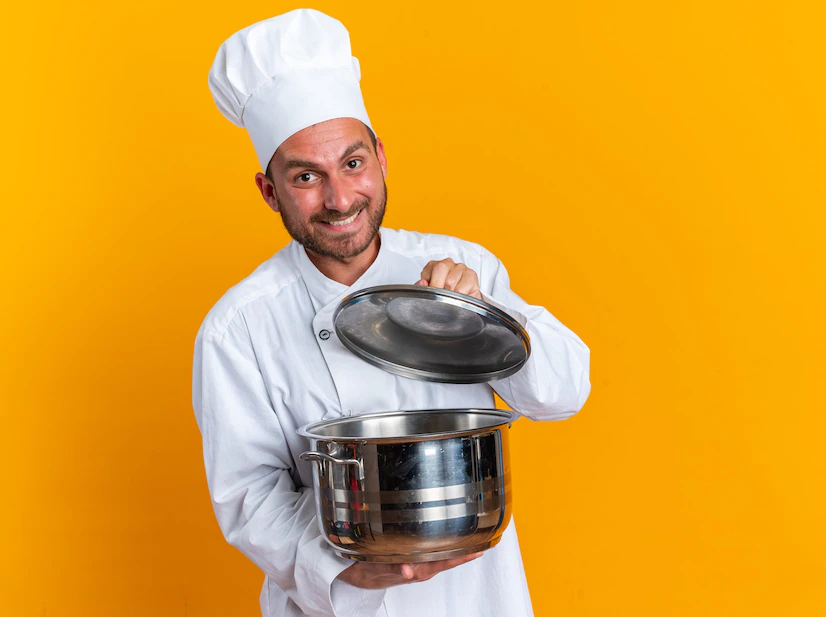If you have the virus COVID-19, it is important to know that you should consult your doctor before cooking. You should also avoid preparing food that contains SARS-CoV-2 or sardine-like particles. Here are some tips to follow:
Consult your doctor before cooking if you have COVID-19
If you have recently contracted COVID-19, you should consult your doctor before cooking. While you may have a natural immunity to this virus, it is always a good idea to wait until your doctor clears you to start preparing food for other people. You can also ask someone else to help prepare your food while you are home alone. You can also use a delivery service to get your food without having to interact with it.
If you suspect you have COVID-19, make sure you wear disposable gloves and aprons. Wash your hands thoroughly before you put on your gloves and apron. Dispose of these gloves in a closed garbage bag. The symptoms of COVID-19 can be mild or severe and will be less noticeable if you stay at home. If you feel fever or chills, contact your doctor immediately. You may also want to wash your hands before cooking or touching any surface.
If you suspect you may have COVID-19, it is important to avoid public places and contact with people with the virus. Try not to cook in public places, and avoid public transportation if possible. If you must visit a public place, use separate towels and cover your cough with an elbow. If you have COVID-19, be careful not to share food or water with others until your symptoms have disappeared.
Although COVID-19 is contagious, it can only survive on a few surfaces. For example, an infected person can spread the virus by breathing his or her cough, and you could end up touching surfaces in close proximity. If you’re worried about catching COVID-19 while cooking, consult your doctor before you do so. You need to avoid contaminating food by using non-stick pans and baking soda.
Avoid preparing soup if you have COVID-19
If you have COVID-19, you should avoid preparing food for others. While you may be able to prepare food for yourself, you should avoid preparing other people’s food. The best way to keep yourself and others safe is to avoid preparing food that is likely to spread the disease. Fortunately, there are several steps you can take to avoid exposure to COVID-19. One of the most important is to make sure that you wash your hands thoroughly and for 20 seconds.
You can find information on how to prevent the spread of COVID-19 by reading FAQ pages on the U.S. Food and Drug Administration and the U.S. Department of Agriculture. In addition, you should wash your hands thoroughly after handling raw meat. You can find more detailed instructions at these sites. If you are unsure, consult your doctor or health care provider. If you have COVID-19, you should avoid preparing soup.
Another important step in preventing COVID-19 is to wash produce thoroughly before cooking or eating raw. You should also disinfect your kitchen surfaces regularly. EPA-registered household disinfectants or a diluted bleach solution are an excellent option. Once you have thoroughly cleaned the kitchen, make sure you cook foods to high temperatures to kill off any harmful germs. You should also wash fruits and vegetables thoroughly before preparing them.
In addition to washing your hands, you should also thoroughly clean your kitchen surfaces with soap and water. The CDC recommends that you wash your hands after touching raw meat. You should also wash your hands after coughing or blowing your nose. If you are not sure of how to wash your hands, read the FDA’s food safety guidelines. Once you know what foods are infected, you can follow these precautions to avoid getting sick.
Avoid preparing food if you have SARS-CoV-2
Although SARS-CoV-2 is not a foodborne pathogen, you should still follow proper hygiene practices when preparing food. The virus may remain on food after it is prepared, so it is best to wash your hands after handling it. Additionally, you should always cook your food at a high enough temperature to kill the virus. If you have the virus, focus on eating at restaurants that take preventative measures to protect their customers. You can drink tap water, but be careful when handling river or wastewater.
It is important to remember that SARS-CoV-2 particles can remain active on some surfaces up to 72 hours. Most of these particles become inactive within 24 hours. To prevent the spread of the virus, you should wash your hands with soap and water after touching food. You should also make sure that the surfaces you touch are clean with disinfectant. You should also keep a distance of at least six feet from others when you are shopping.
You should use your own kitchenware when preparing food. Disinfecting surfaces with EPA-registered household disinfectants or diluted bleach solution is also advisable. Additionally, you should cook your food to a high temperature to kill the harmful germs. The main way to avoid contamination with SARS-CoV-2 is to wash your hands thoroughly. If you are unsure, you can ask a friend or family member to do this for you.
Infected humans may also develop SARS-CoV-2 by handling small farm animals. Large numbers of infected animals confined to small spaces increase the risk of transmission. The infection is transmitted through contaminated air, which can enter the mouth and nose. In some cases, it can cause acute respiratory distress syndrome and death. So, it is imperative to practice the basic principles of hygiene before preparing food if you have SARS-CoV-2.
If you suspect you are infected with SARS-CoV-2, it is important to avoid food preparation in close proximity to others. It is essential to wash surfaces thoroughly after handling food so as to prevent the spread of the virus. Moreover, you must avoid sharing food with others, including your pets. It is also recommended to avoid petting, kissing, and snuggling with anyone, as well as eating food shared by another person with SARS-CoV-2.
It is important to test food workers for SARS-CoV-2 to prevent the contamination of food products. Infected workers can contaminate food products and spread the virus among their co-workers. To reduce the risk of transmission, healthy food industry employees should wear protective masks when working worldwide. However, if you are infected with SARS-CoV-2, you should not touch food surfaces at all, including fruits and vegetables.
Podobne tematy




